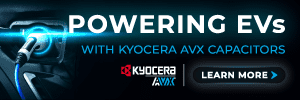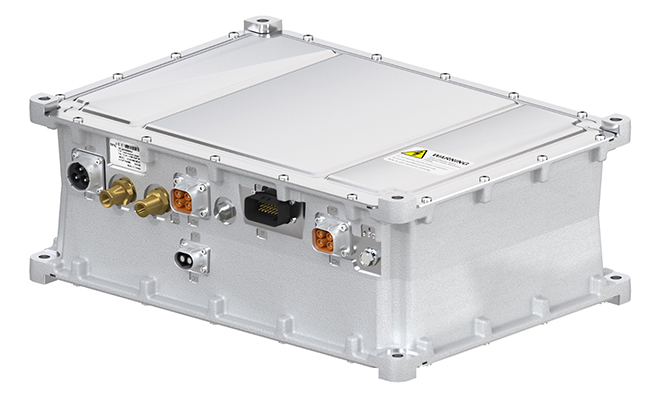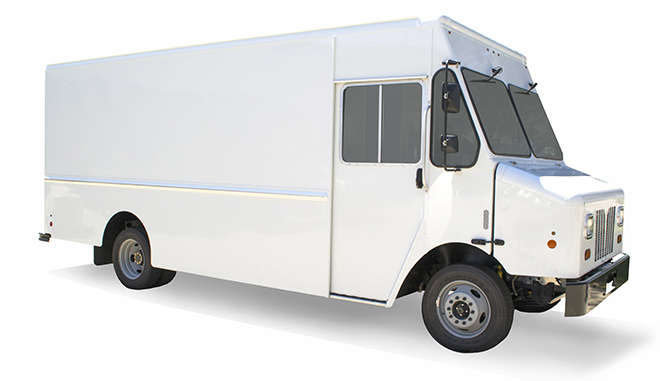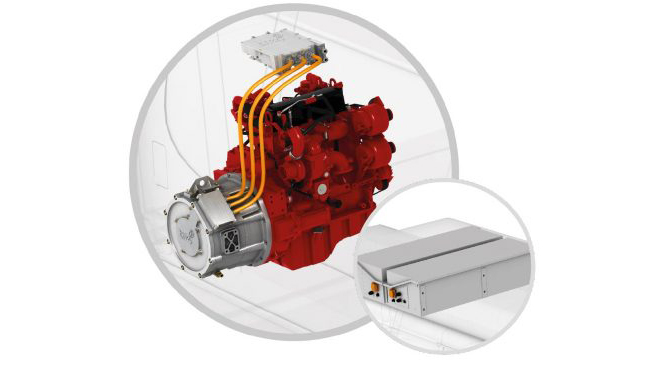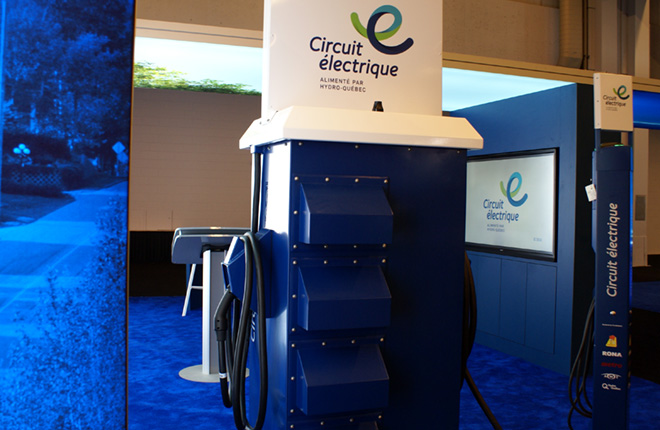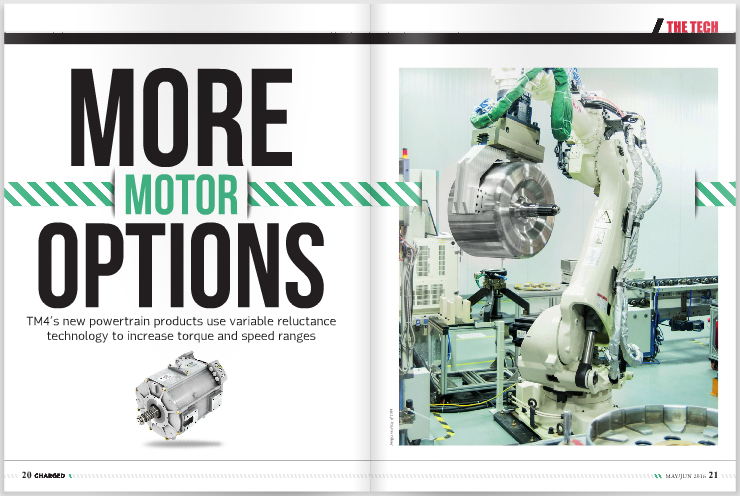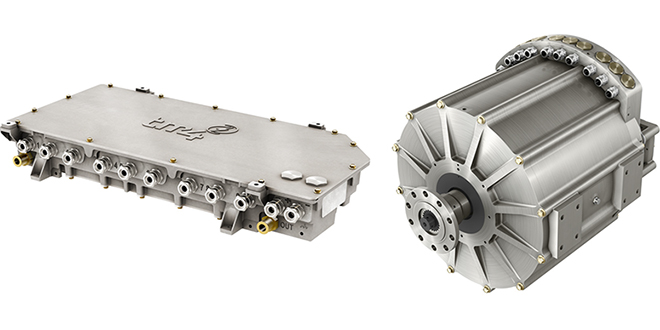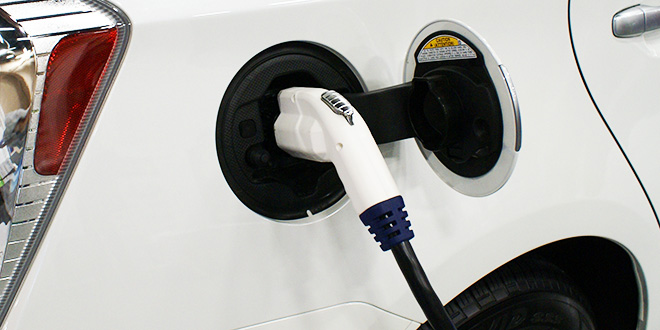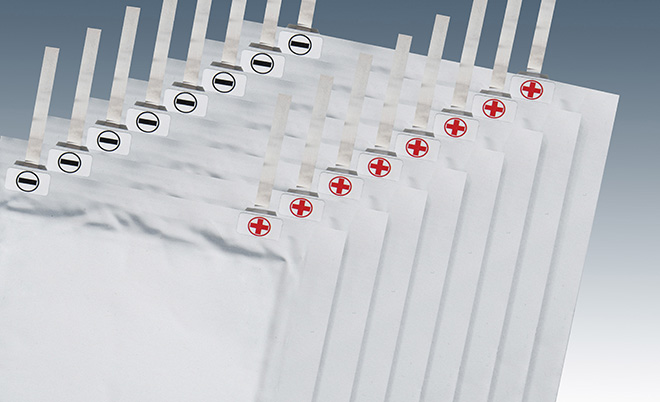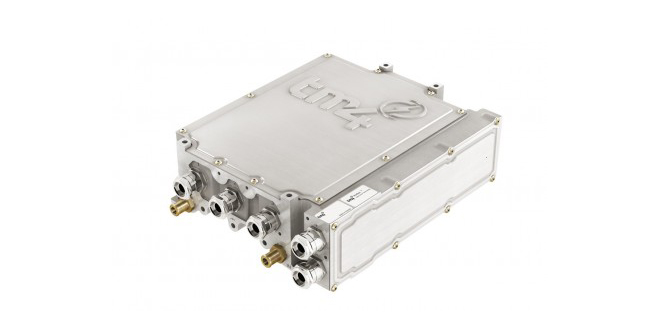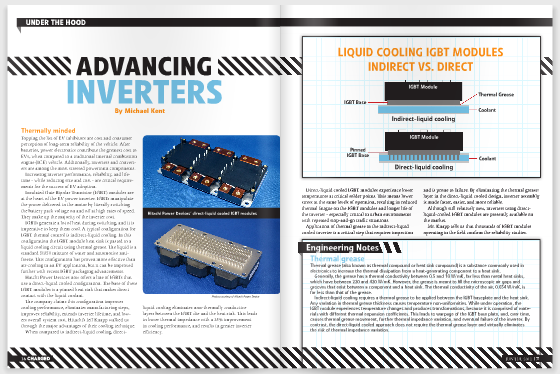Motor and power electronics manufacturer TM4, a subsidiary of Hydro-Québec, has launched a new bidirectional charger-inverter. TM4’s BCI20 functions as both battery charger and inverter for use in a variety of electric and hybrid vehicle applications. It is designed to use the full current range from the AC mains as defined in SAE J1772 for… Read more »
Search Results Found For: "Hydro-Québec"
Workhorse orders 500 more electric powertrain systems from TM4
Powertrain provider TM4, a subsidiary of Hydro-Québec, has received a new purchase order from Workhorse Group (NASDAQ: WKHS) for 500 SUMO MD powertrain systems, following last year’s order of 150 systems. Workhorse will install the powertrains in its E-GEN and E-100 delivery trucks, destined for such customers as UPS and FedEx Express. The Workhorse E-100… Read more »
TM4 and Cummins partner to develop plug-in hybrid powertrain for e-buses
Hydro-Québec subsidiary TM4 has joined with motor-maker Cummins to develop a plug-in hybrid powertrain for Class 7/8 transit buses. TM4 equipped 5,000 buses in China with its electric powertrain last year. The new system consists of a genset (Cummins’ Euro 2019 B4.5 engine coupled with TM4’s LSG130 electric generator), a TM4 SUMO electric motor, a… Read more »
Québec installing fast chargers along busy highway corridor
The Canadian province of Québec is systematically building a chain of fast charging stations along Highway 20, one of the region’s busiest corridors. Premier Philippe Couillard, Hydro-Québec CEO Éric Martel and other dignitaries celebrated the completion of a new phase of the project at the recent EVS29 Electric Vehicle Symposium. Public charging network The Electric… Read more »
More motor options: TM4 launches new powertrain products with increased torque and speed ranges
TM4 designs electric powertrains for the most demanding vehicle platforms and duty cycles on the road. Formed as a subsidiary of the public utility Hydro-Québec, the company sells its motor and control products to manufacturers of heavy-duty trucks and buses around the world. In June, TM4 will release an update to its SUMO product line… Read more »
Québec government provides funding for new electric drivetrain project
The Canadian province of Québec has taken a forward-looking stance on EVs – electric utility HydroQuébec is deploying public fast charging stations, and the provincial government has funded the development of an electric school bus and research into V2G technology. Now Québec Premier Philippe Couillard has announced that the province will make 16 million Canadian… Read more »
EV-friendly countries and states join to form the International ZEV Alliance
Plug-in vehicles are on a roll – as of this month, there are now a million on the world’s roads, according to an estimate by the International Council on Clean Transportation (ICCT). However, that’s still a tiny fraction of the two-billion-strong global vehicle fleet. EV adoption will have to ramp up quickly to have an… Read more »
French chemical giant and utility join to create energy storage R&D lab
Arkema, a global chemical company, and SCE France, a subsidiary of Canadian electricity producer Hydro-Québec, plan to create a joint laboratory that will focus on developing a new generation of materials for the manufacture of lithium-ion batteries, in particular new electrolytes (solvents, lithium salts) and conduction agents (carbon nanotubes, conductive polymers). Arkema’s Kynar polyvinylidene fluoride… Read more »
TM4 introduces auxiliary power supply for EV accessories with CAN-based interface
TM4, a subsidiary of public utility Hydro-Québec, is active in the development of EV motors and power systems. Its latest product is the CO150-HVF, an auxiliary power supply for commercial vehicle applications. Based on the same platform as the company’s CO150 traction inverters, the CO150-HVF offers a CAN-based interface that allows dynamic control of frequency… Read more »
Advancing Inverters
Topping the list of EV inhibitors are cost and consumer perception of long-term reliability of the vehicle. After batteries, power electronics contribute the greatest cost to EVs, when compared to a traditional internal combustion engine (ICE) vehicle. Additionally, inverters and converters are among the most stressed powertrain components. Increasing inverter performance, reliability, and lifetime –… Read more »






